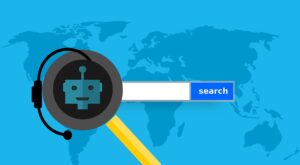
AI in Industry: An Evolution in Progress
A recent Deloitte survey of over 2800 corporate directors and C-Suite leaders reveals that Artificial Intelligence (AI) is making significant inroads into the workings of thousands of national and global enterprises. Representatives from six industries and 16 countries offered their insights and experiences about how their organizations are using the technology. Their observations illustrate AI’s broad reach and deep impact on their company, community, and industry.
Adoption Across the Industrial Board …
Just one reason why AI—and more specifically ‘generative‘ AI—has been embraced as swiftly as it has is its capacity to solve enterprise-focused challenges that had previously been difficult or impossible to manage. Access to almost infinite levels of data gathered across multiple databases facilitates a more comprehensive analysis of an issue than has ever before been available. Business leaders are seeing that potential and turning to the tech to gain insights and guidance they previously could not find. There are opportunities for AI-empowered actions in almost every industry, as is demonstrated by a recent report on the burgeoning number of AI use cases:
Retail
Retail organizations are using AI to provide several services that are critical to their success.
‘Bots’ now respond to a high percentage of customer service calls, directing callers to the department best suited for their inquiry.
The tech is also enhancing the shopper’s experience by providing more detailed and appropriate suggestions based on their input and history.
Logistics and Travel
Businesses that provide transport or cater to travelers are also embracing AI as a service-enhancing tool:
AI engines can find more and better transport options, whether for an individual heading across the state or a shipment of goods moving across oceans.
AI programs and embedded sensors combine to provide minute-to-minute oversight of supply chain products, from the moment they enter the production cycle through to their delivery to their ultimate user. Tracing the passage of goods through service centers and across international borders has never been easier.
The software also informs systems developers of potential bottlenecks that can threaten delivery times early enough to prevent that gaff from occurring.
Financial Services
‘Money’ isn’t always cash these days, and AI is assisting billions of people to access the financial resources they seek, regardless of the currency they’re using or the purchases they’re making.
Banks are streamlining their offerings to accommodate their increasingly tech-savvy financial customers, often providing personalized planning tools designed for the unique person or entity in question.
Insurance companies are using AI to evaluate claim data, establish legitimate claims, and uncover potential or actual fraud cases. They’re also streamlining their policies to better reflect actual risk levels based on AI-enabled risk assessment capabilities.
Energy
Both traditional and emerging energy resources are fine-tuning their activities based on insights gleaned from AI programming.
Traditional energy providers use the technology to improve efficiencies within their plants and systems, often by automating services and using sensors to track metrics, performance, maintenance, and other relevant elements.
They’re also using AI to facilitate and track the growing inputs of renewable resources into the nation’s power grid.
Healthcare
The healthcare services spectrum is perhaps the most invested in AI.
AI is proving invaluable as a tool to streamline administrative systems to make them more efficient and effective.
It is also connecting medical teams with emerging data that is relevant to their shared patient. With each specialist and team having virtually instant access to developing healthcare needs, the patient can receive the best possible care for their particular condition regardless of whose office they happen to be in.
The pharmaceutical industry is also using AI to improve its services to the healthcare industry. Automated software eases data collection and analysis of the enrollment in and the running of clinical trials, ensuring their proper execution according to industry standards. The resulting information informs drug developers of needs, threats, and other relevant factors impacting the future of a potential medicine or therapy.
Even in its current, relatively raw, and unregulated state, the use of AI is gaining significant ground in almost all industries to perform an ever-growing list of services and occupations.
… For an Almost Unlimited Number of Purposes
While its popularity for automation implementation and control continues to grow, many companies report using their AI resources for one or more of three specific functions. The Deloitte report notes that most early AI adopters focused their investments on improving corporate efficiencies, increasing productivity, and reducing costs. Of those survey respondents:
56% reported that their AI investments were making their organization more efficient, while
35% reported their costs had shrunk because of the technology.
Almost one in three (29%) reported they experienced enhanced product values and services as a result of their AI implementation.
Other surveys show that companies are using the technology to perform a myriad of services beyond achieving better efficiency or reducing costs:
AI programming can oversee the inner workings of almost any digital system, so its capacity to optimize website reliability and uptime for example is unmatched. The AI overlay can detect potential site or data disruptions before they cause problems, and its monitoring capacity ensures that all elements of the organization remain in sync with corporate goals and initiatives.
AI’s predictive maintenance capability is saving companies money, too. GE and Rolls-Royce, for example, are using it to analyze aircraft engine performance to both catch wear-and-tear issues before they become failures, as well as to track exhaust metrics and other relevant environmental concerns typically found in the aeronautics field.
Workforce optimization is another industry aspect being transformed by the technology. To both enhance productivity and reduce costs, many companies are using AI to manage workforce scheduling duties by incorporating into the analysis factors such as employee availability, worker skill sets per project, and customer traffic. Small and big organizations, including Target®, Costco®, and Starbucks®, use AI to ensure they are optimizing their workforce metrics as well as keeping their customers happy.
While still a relatively new resource, both the current capacity and future promise of AI as a business tool can’t be underestimated. It offers unmatched opportunities for growth and, when used properly and safely, may solve some of the world’s most intractable problems.


